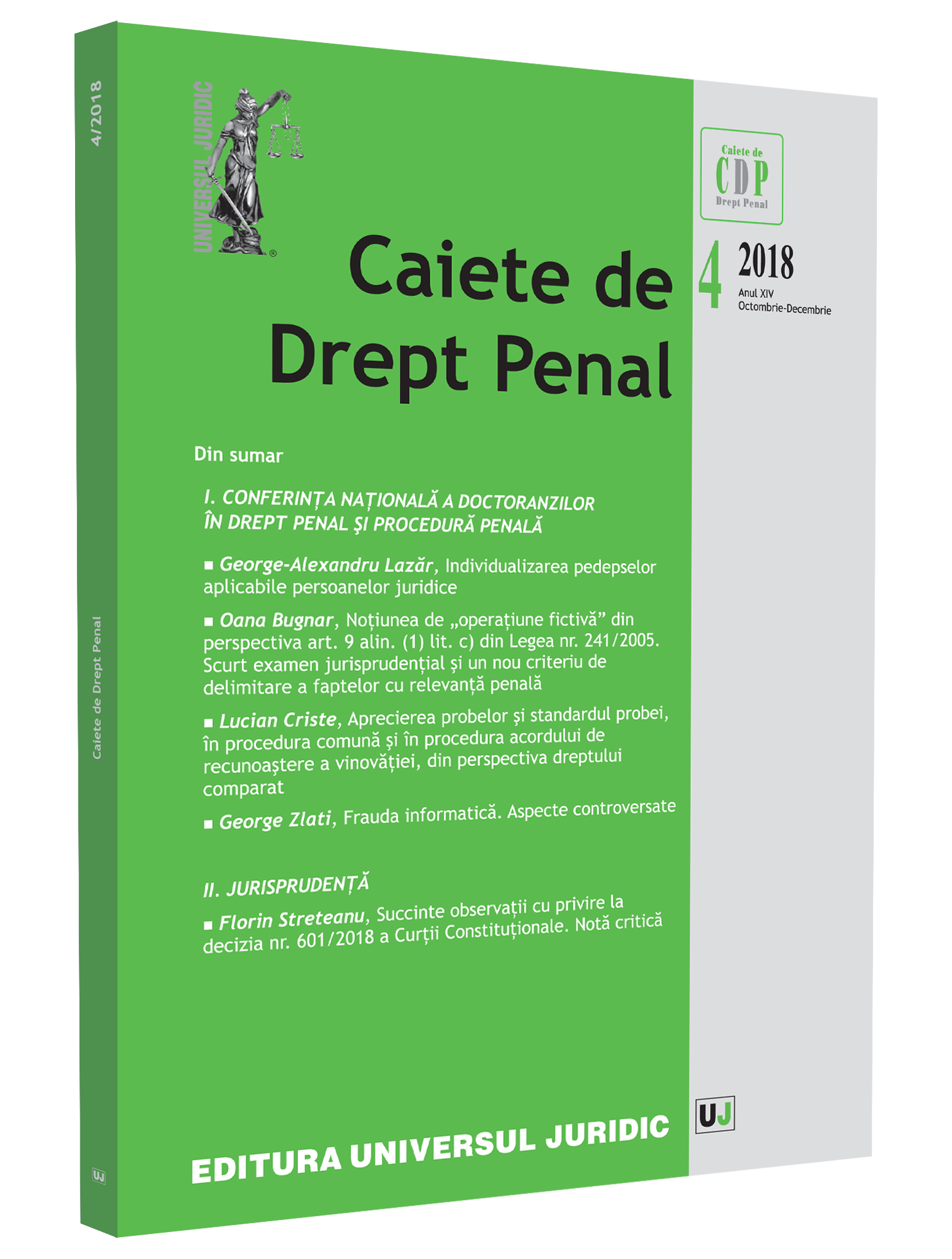(I) Dare de mită. Elementul circumstanţial agravant referitor la săvârşirea infracţiunii în raport cu un funcţionaravând atribuţii de control. Condiţii
(I) Bribery. The aggravating circumstantial element consisting of committing the offence in relation to an officialhaving control responsibilities
Author(s): Cristian Valentin ŞtefanSubject(s): Law, Constitution, Jurisprudence, Civil Law
Published by: Universul Juridic
Keywords: bribery; an official having control duties; the activity of criminal law; the retroactivity of decriminalization;
Summary/Abstract: I. According to art. 7 par. 2 of the Law no. 78/2000 for preventing, discovering and combating corruption, in force at the time of the events, bribery, in the form of offering, was more seriously punished if committed in relation to an official having control duties. Firstly, control duties involve prerogatives so as to verify certain situations, as well as powers to follow up on these situations and, if necessary, to take or propose measures accordingly. Secondly, the aggravating circumstantial element can be enforced only if the offense of bribery is committed in connection to the exercise of the control duties. II. a) Decriminalization occurs through two mechanisms: the abolition of criminal provisions in the context of an objective impossibility to frame the committed acts in another criminal provision in force and by modifying the constitutive elements of the offense in such a way that the in concreto act is no longer found in the legal content described by the new law. b) The activity of criminal law and the retroactivity of the decriminalization are based on different premises, so they cannot coexist. In the event of a succession of legal provisions, the activity of the criminal law claims that the act should be incriminated both in the old law and in the new law, the new law not being favourable. The retroactivity of the decriminalization claims that the act, incriminated in the old law, is no longer incriminated in the new law.
Journal: Caiete de drept penal
- Issue Year: 2018
- Issue No: 04
- Page Range: 172-180
- Page Count: 9
- Language: Romanian
- Content File-PDF

